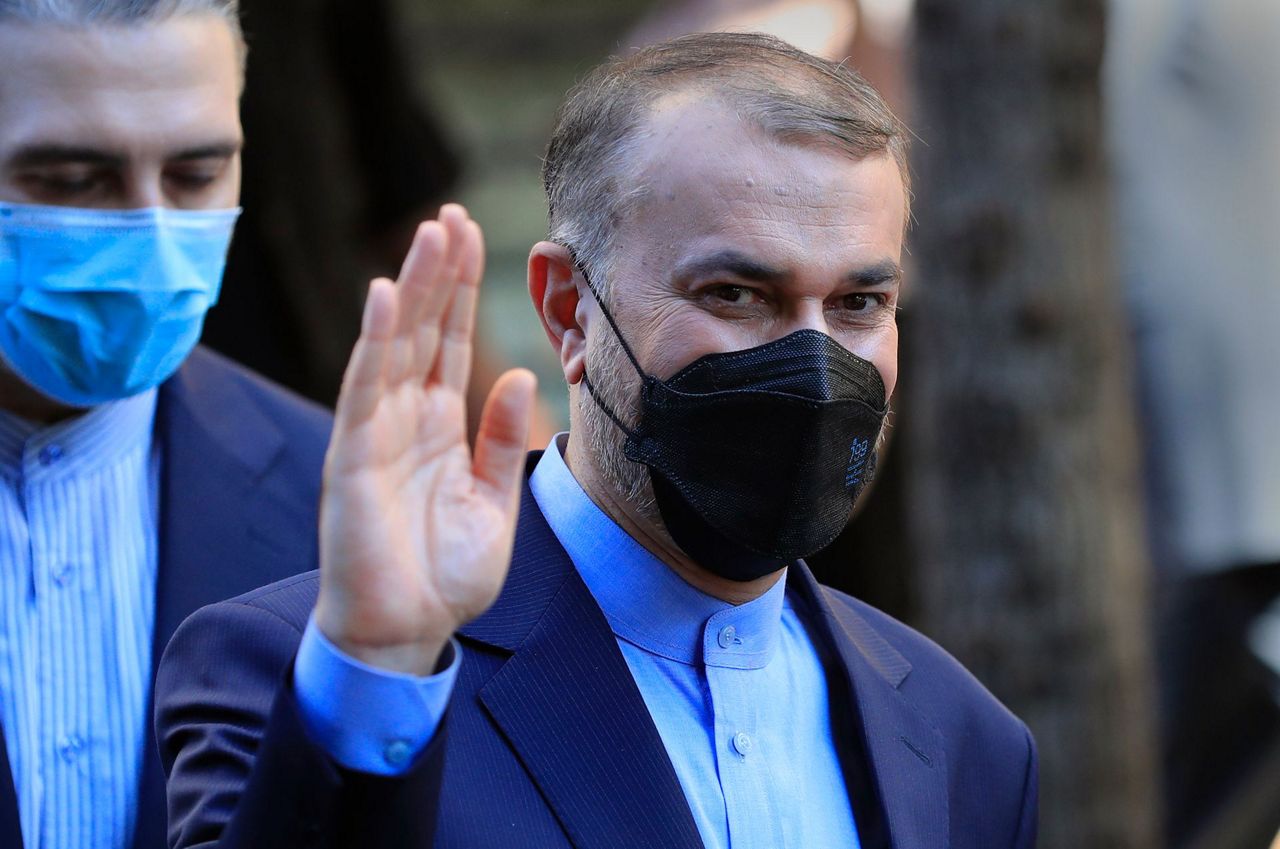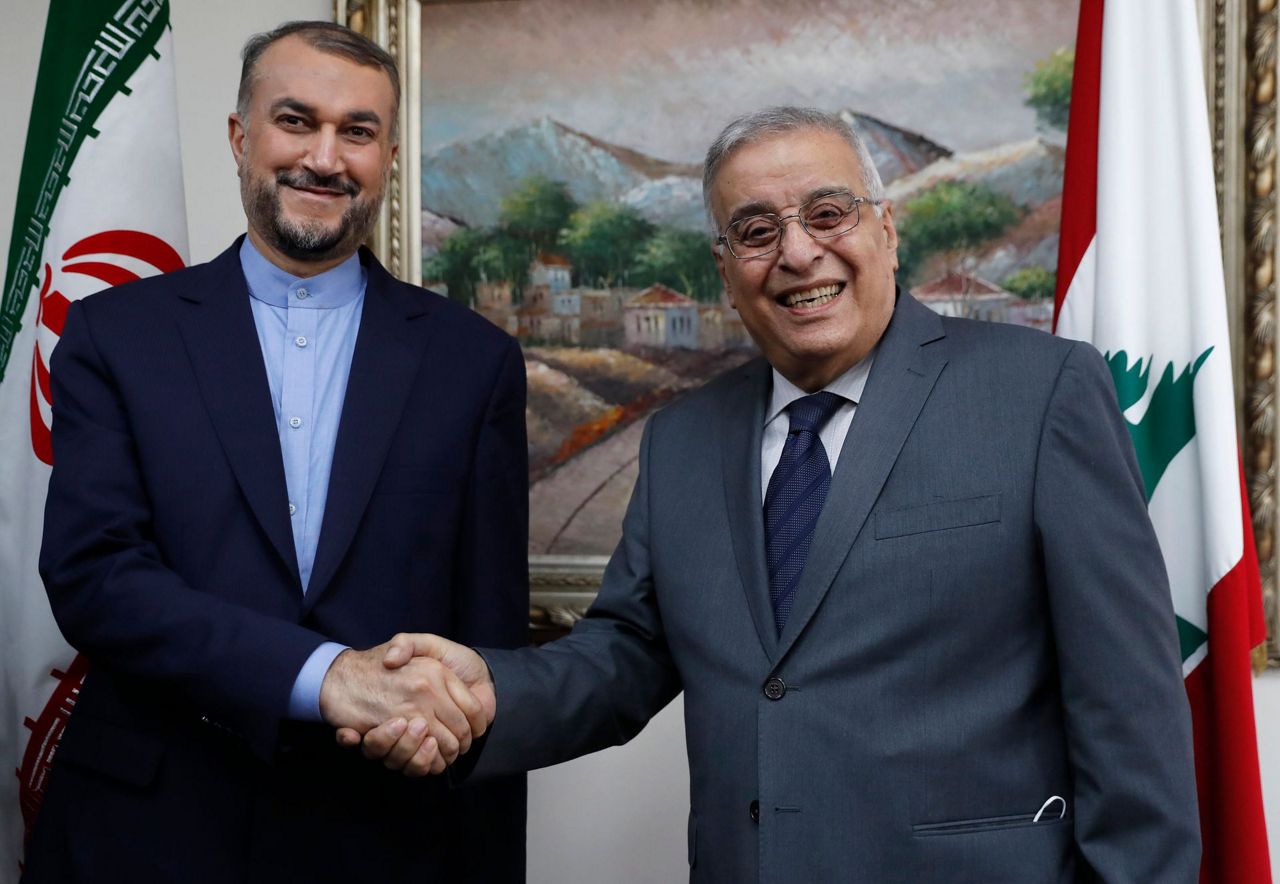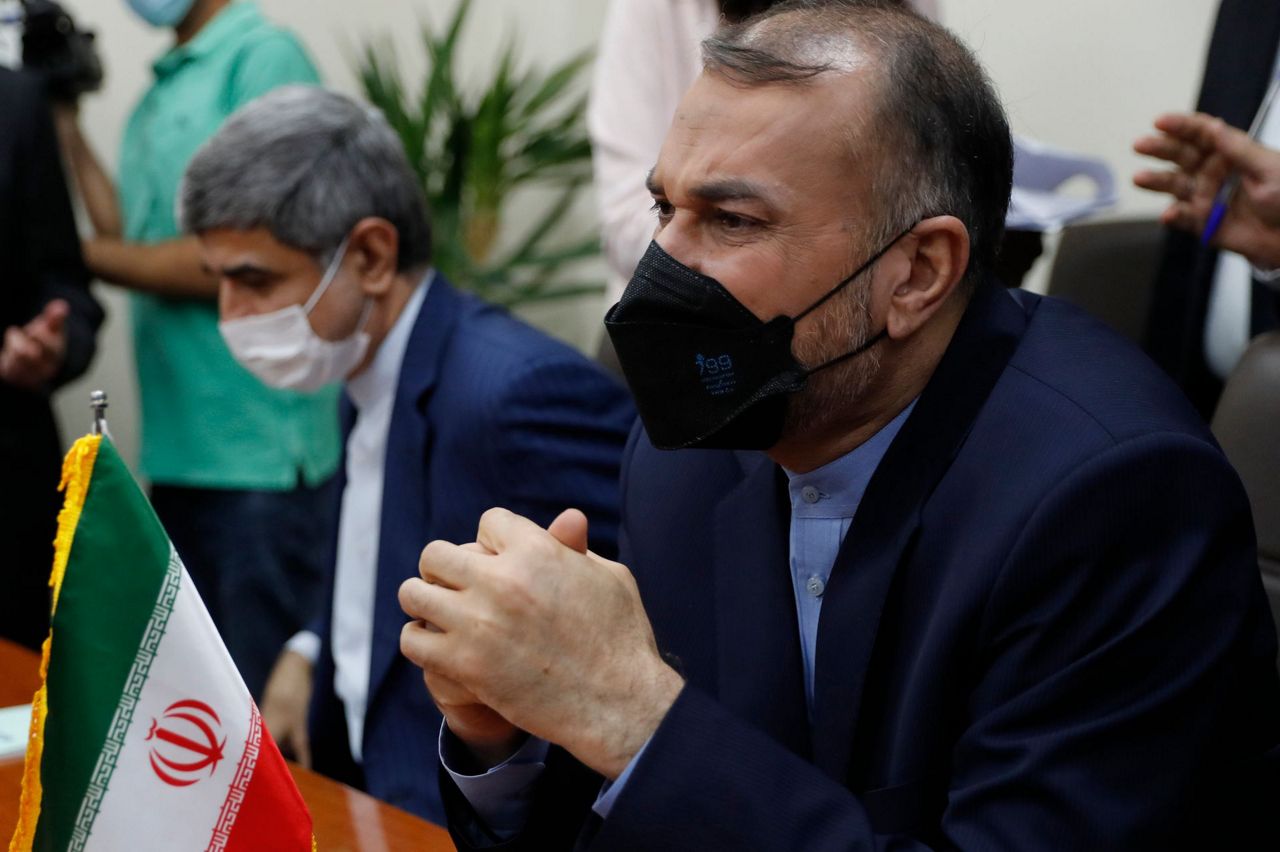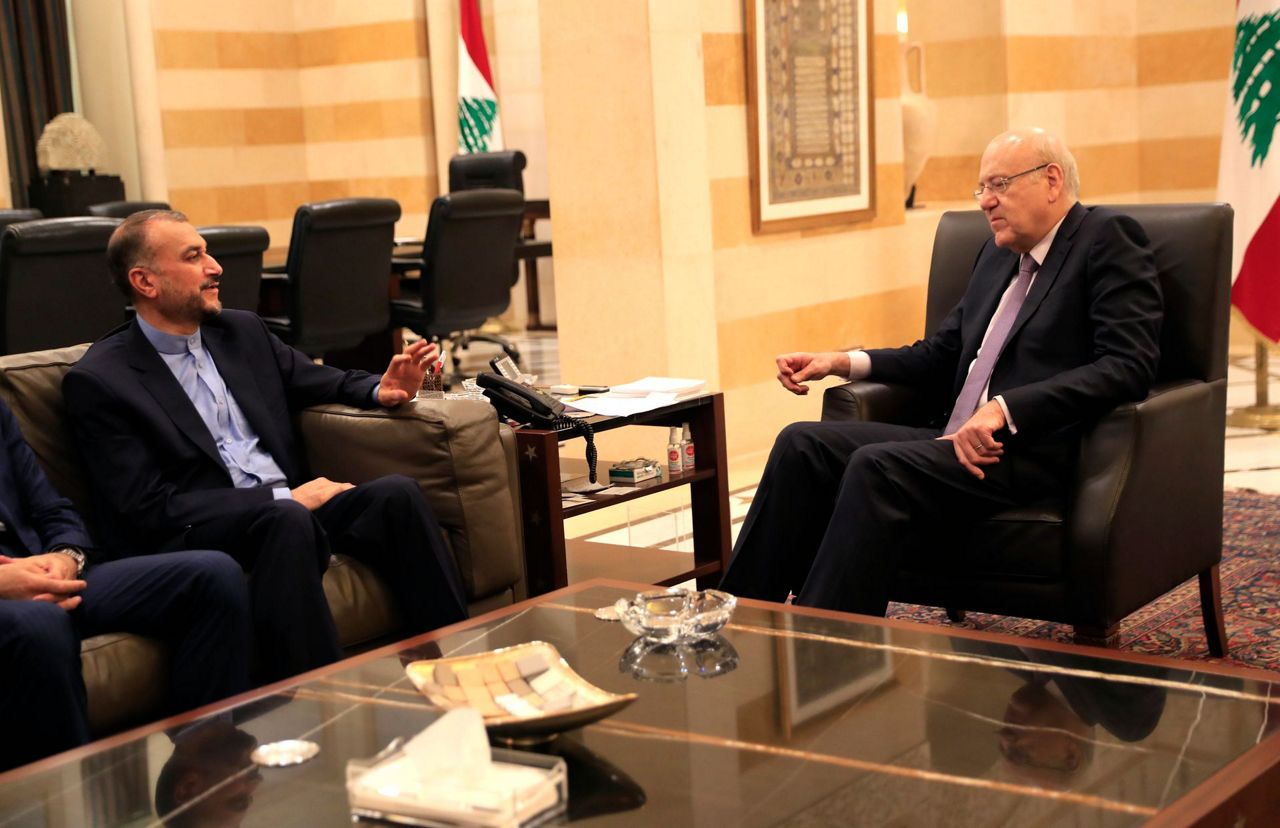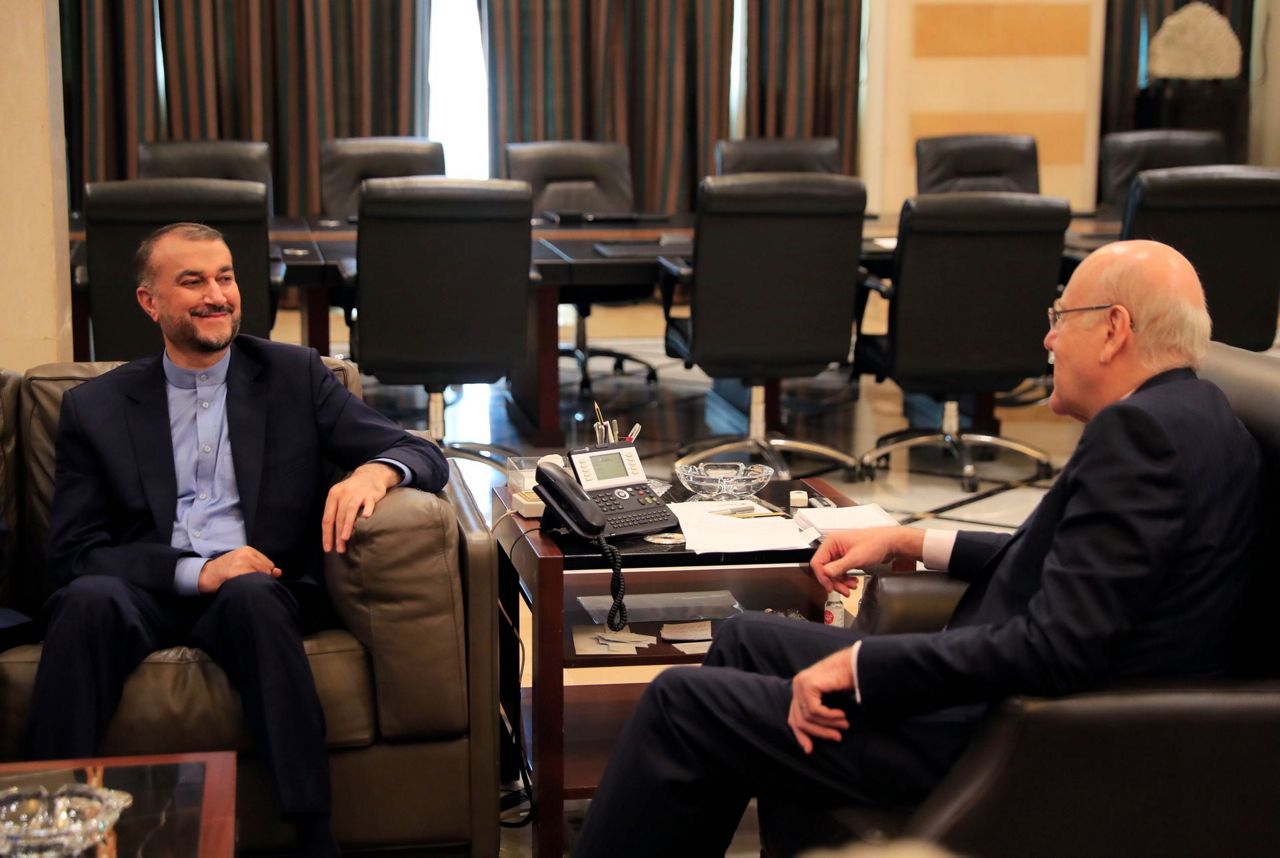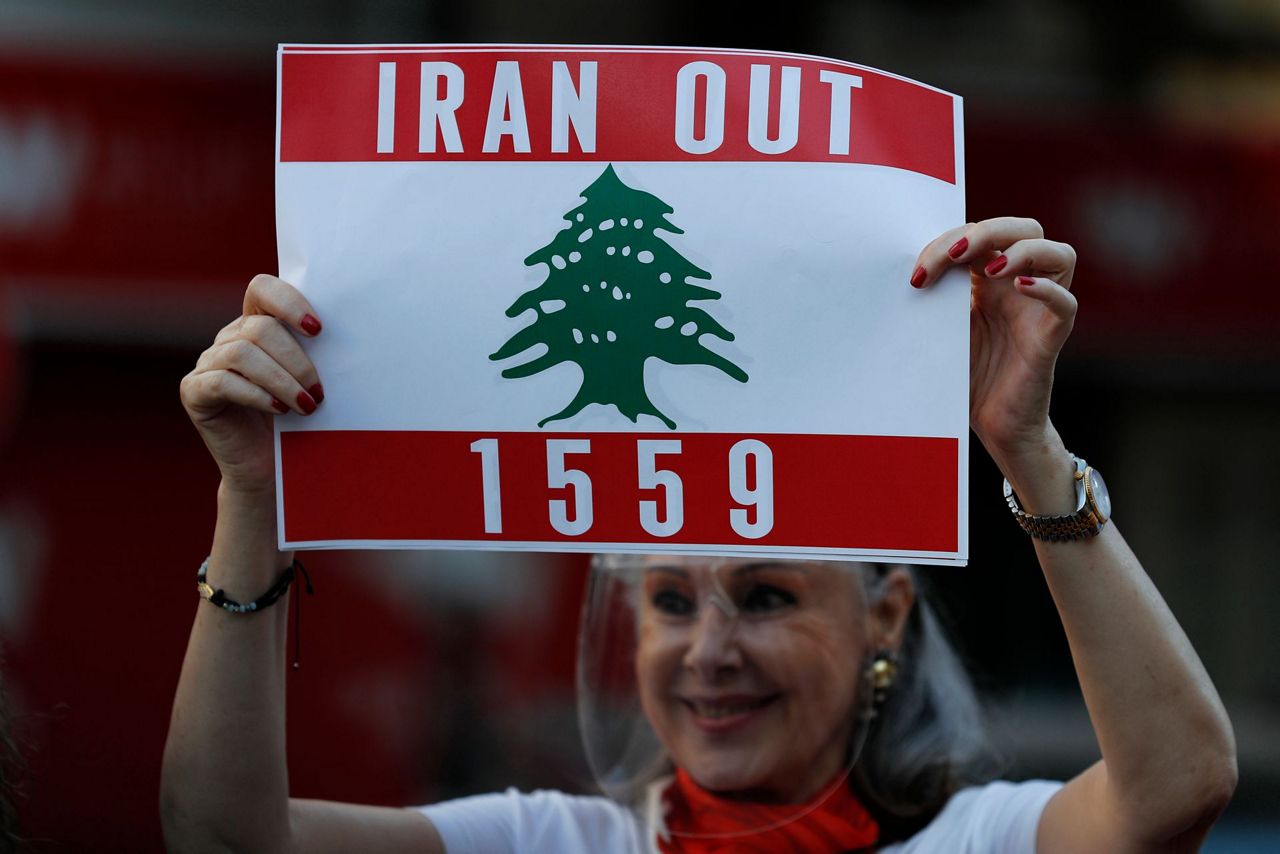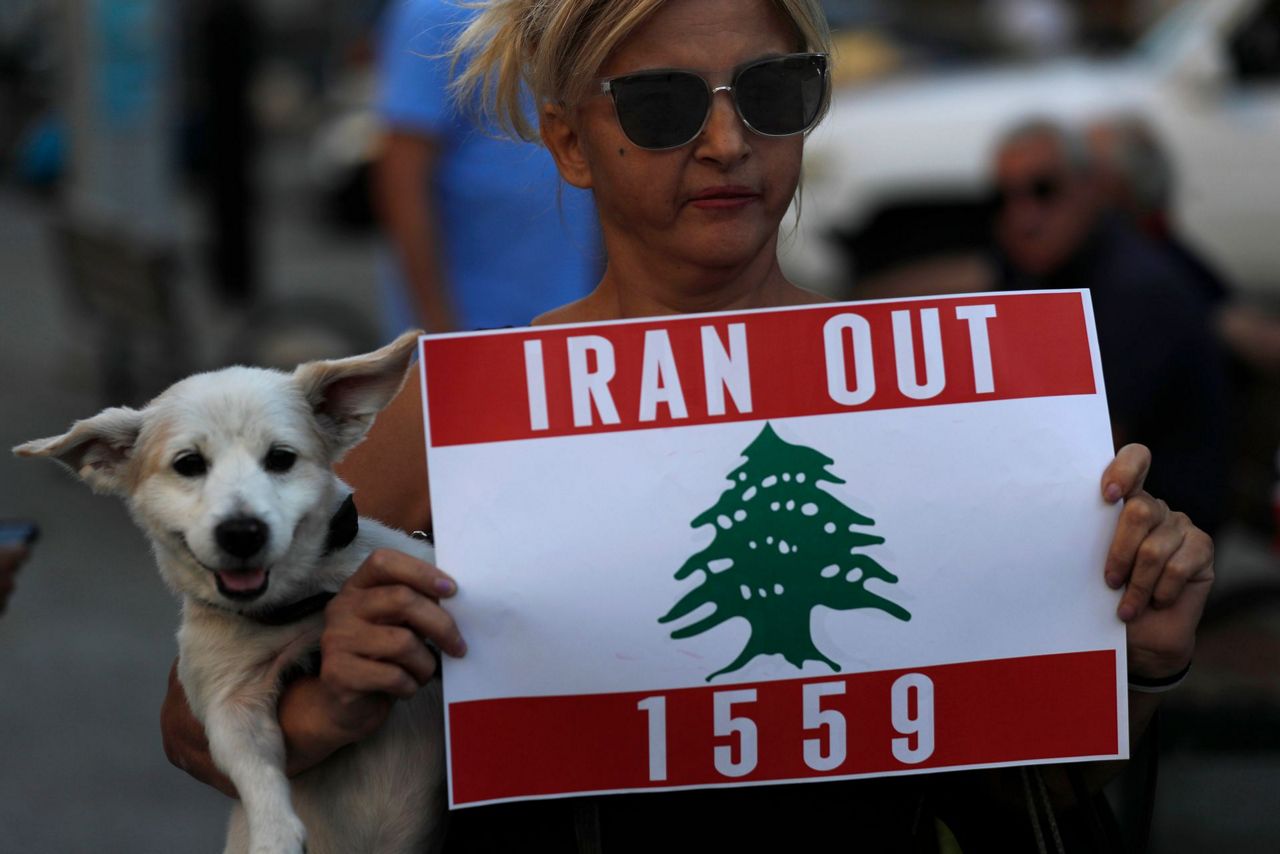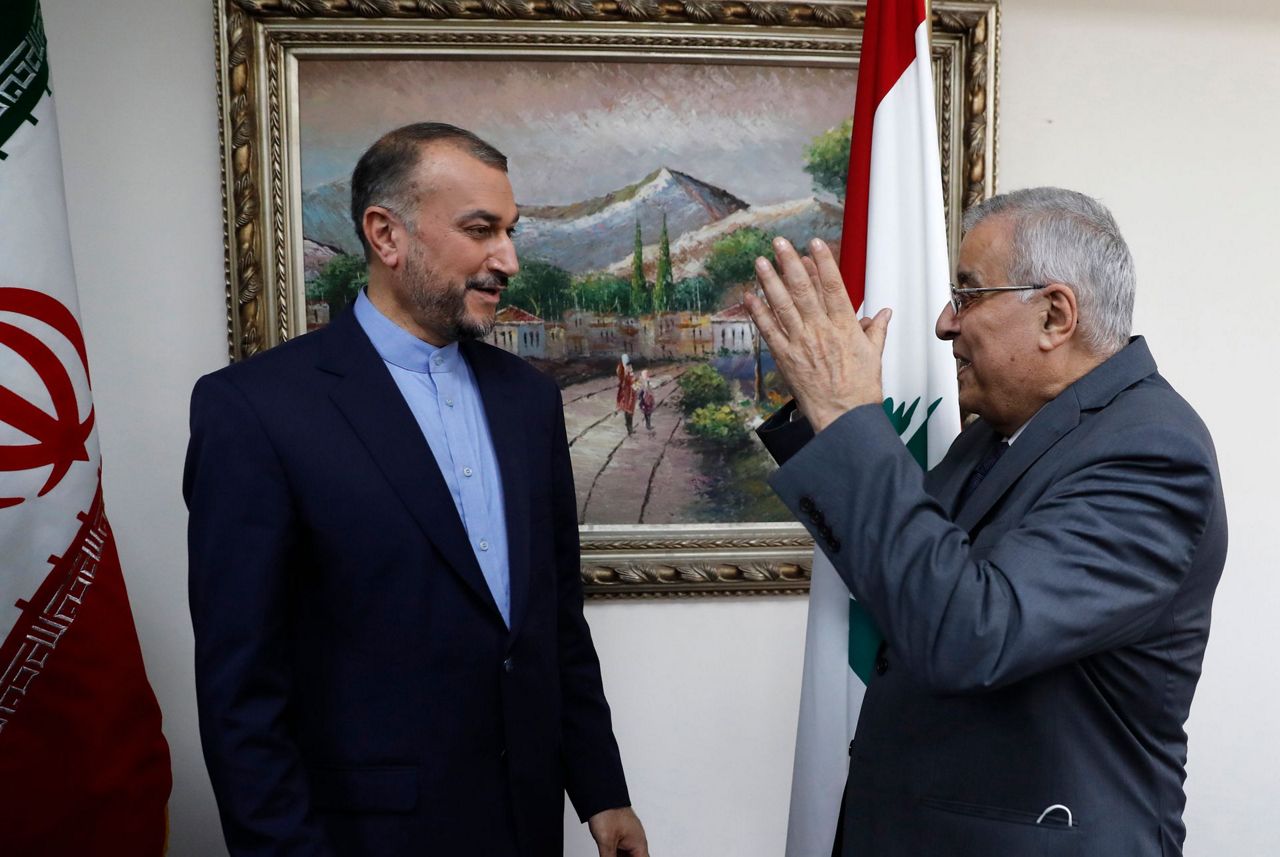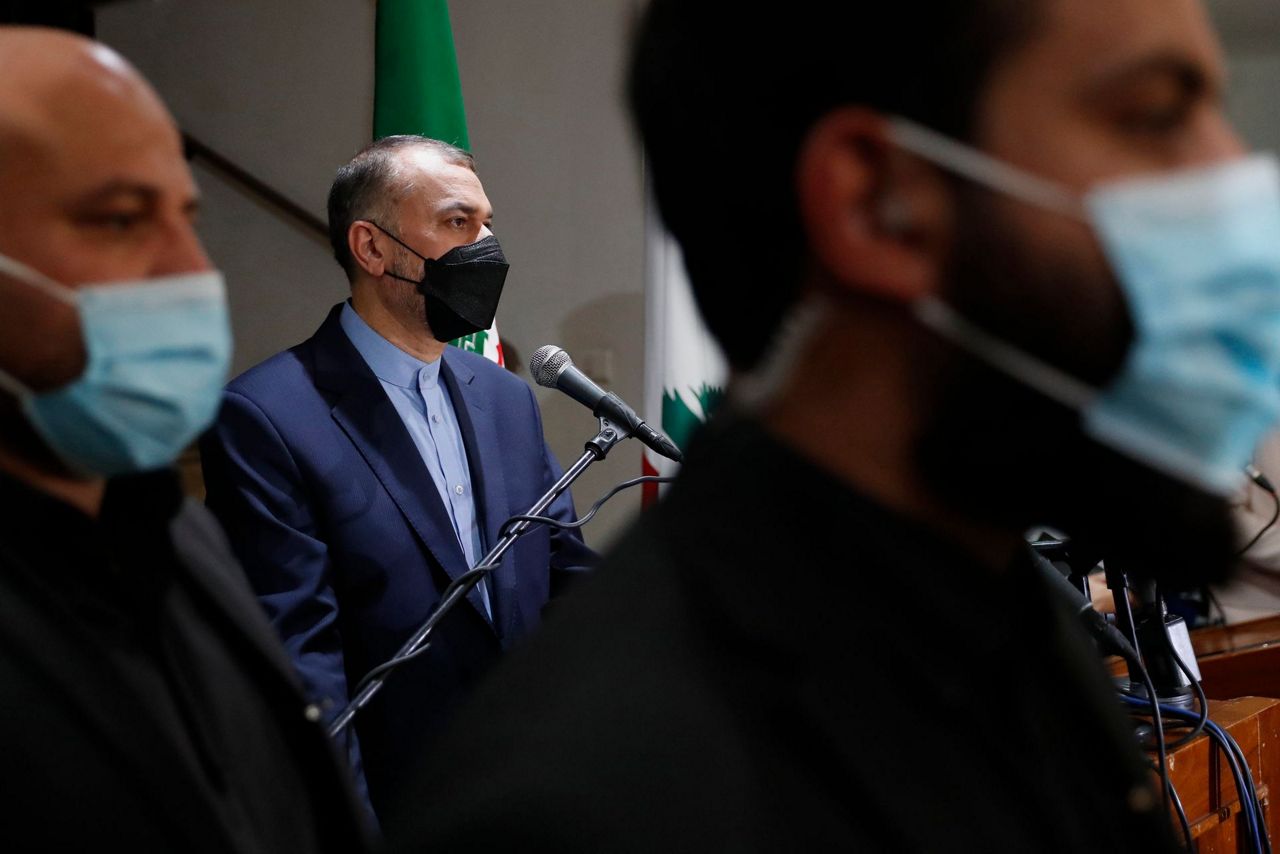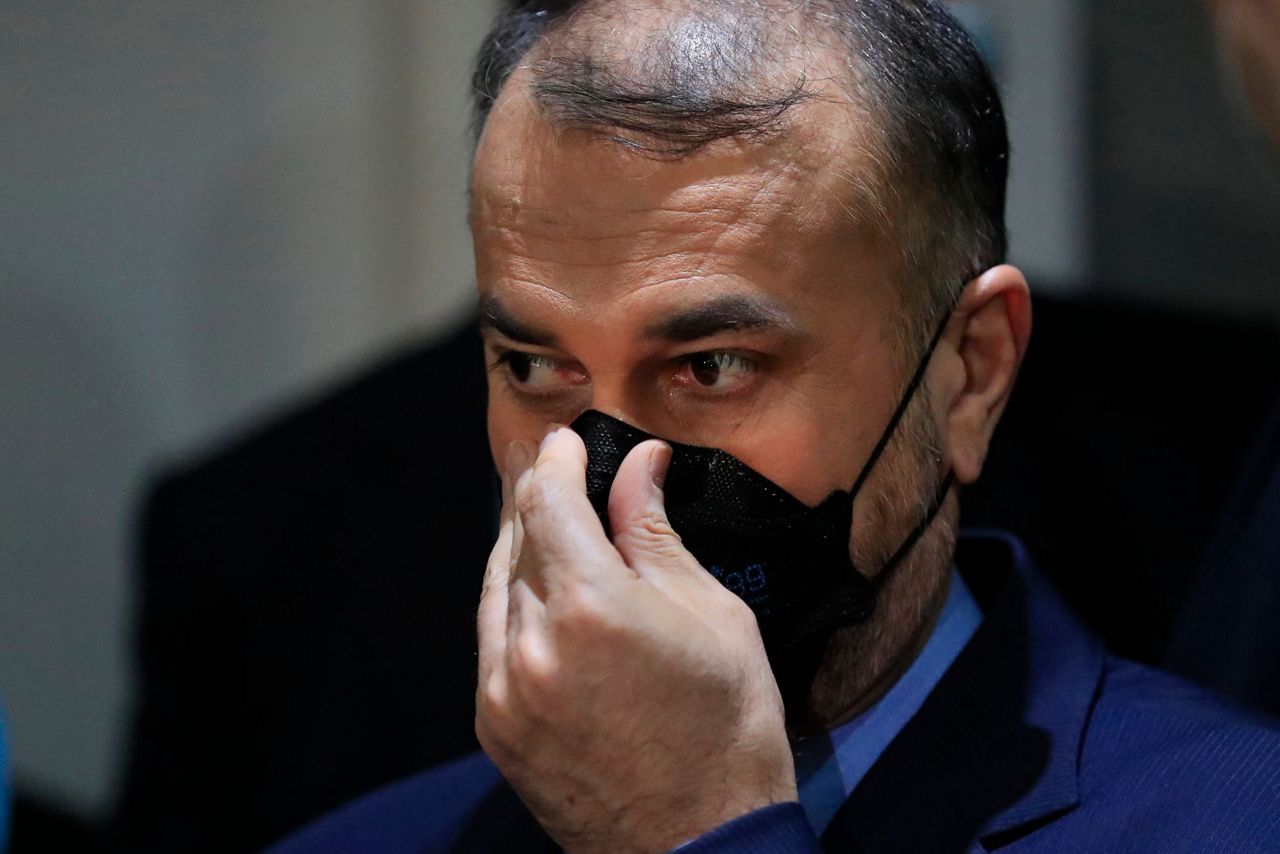BEIRUT (AP) — Talks between Iran and Saudi Arabia are on a “good path," Iran’s foreign minister said Thursday, suggesting the negotiations between the two regional archrivals would continue.
Speaking during his first visit to Lebanon since taking his post after Iran’s presidential elections in June, Hossein Amir-Abdollahian also offered to help Lebanon end its decades-old electricity crisis by building new power plants.
The Iranian diplomat arrived in Beirut on Wednesday from Moscow, where he said the Iranian side has proposed “new constructive ideas” in the last meeting with the Saudis, and that Iran was ready to return to normal diplomatic ties. He also said nuclear talks to revive Tehran’s now-tattered 2015 accord with world powers, stalled since June, will resume soon.
“Regarding Iranian-Saudi negotiations, a good path is being paved,” Amir-Abdollahian told reporters after meeting his Lebanese counterpart Abdallah Bouhabib. He did not elaborate.
Amir-Abdollahian was referring to multiple rounds of discussions in Baghdad since the first direct talks between regional foes Riyadh and Tehran took place in early April.
The latest round was held late last month, according to Iraqi officials, marking the first such meeting between the two sides since a new Iranian president was sworn in. Those at the meeting discussed “pending issues between the two countries according to a previously agreed on a roadmap, including diplomatic representation between the two countries,” according to one Iraqi official.
Earlier in the day, Amir-Abdollahian said after meeting Lebanon’s Parliament Speaker Nabih Berri: “We have positively evaluated the continuation of Iranian-Saudi negotiations.”
Iran and Saudi Arabia have long been regional rivals. Relations worsened considerably in 2016, when Riyadh removed its diplomats after protesters attacked its embassy in Tehran and consulate in Mashhad in retaliation for the kingdom executing a prominent Shiite cleric, Nimr al-Nimr.
An improvement in Saudi-Iranian relations is likely to have positive effects in Lebanon, a small country where tensions between the two regional powers have often played out.
Iran enjoys wide influence in Lebanon through the militant Hezbollah group, which is funded and armed by Tehran. Lebanon is deeply divided between a coalition backed by the West and Gulf Arab countries, and another group supported by Iran and led by Hezbollah.
The Iranian minister also repeated often-heard rhetoric from Tehran, and in reference to U.S. troops, said that Iran considers “the presence of foreign forces in the region as the main factor for instability and all problems.”
Speaking about the stalled talks in Vienna over the nuclear deal, Amir-Abdollahian said Iran was “fully ready” to return to the agreement if others were “serious, frank and have real intention” to return as well — a reference to Washington. Former President Donald Trump pulled America out of the deal in 2018.
Amir-Abdollahian also added that Iran would return to the deal once all sanctions imposed on Iran are lifted.
Earlier in the day, he held talks with President Michel Aoun and expressed the Islamic Republic’s readiness to help Lebanon as it grapples with a severe economic crisis.
Iranian companies are ready to build two power plants, the Iranian top diplomat said, one in Beirut and one in southern Lebanon, within 18 months, to help ease a paralyzing blackouts that last about 22 hours a day.
Also, if asked, Iranian companies are ready to help in rebuilding Beirut’s port that was destroyed in a massive blast in August last year, he added.
Last month, dozens of trucks carrying Iranian diesel began arriving in Lebanon, part of a series of deliveries organized by Hezbollah to help ease crippling shortages in the cash-strapped country. Hezbollah operates independently from Lebanese authorities, which were not involved in the shipment that violates U.S. sanctions on Tehran.
The third Iranian tanker carrying diesel arrived in the Syrian port of Baniyas this week; the fuel is to be shipped to Lebanon by tanker trucks.
The issue of Iran's assistance is divisive in Lebanon. Some Lebanese opposed to Iran’s influence held a small protest Wednesday against the Iranian foreign minister’s visit, carrying banners that read “Iran out.”
Copyright 2021 The Associated Press. All rights reserved. This material may not be published, broadcast, rewritten or redistributed without permission.



